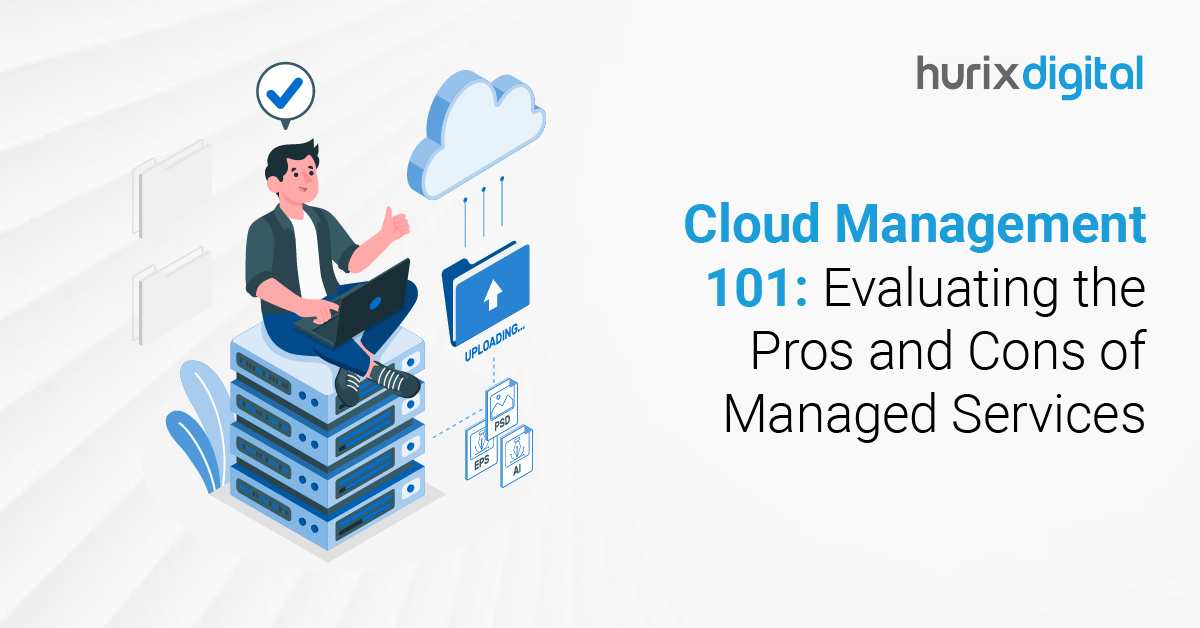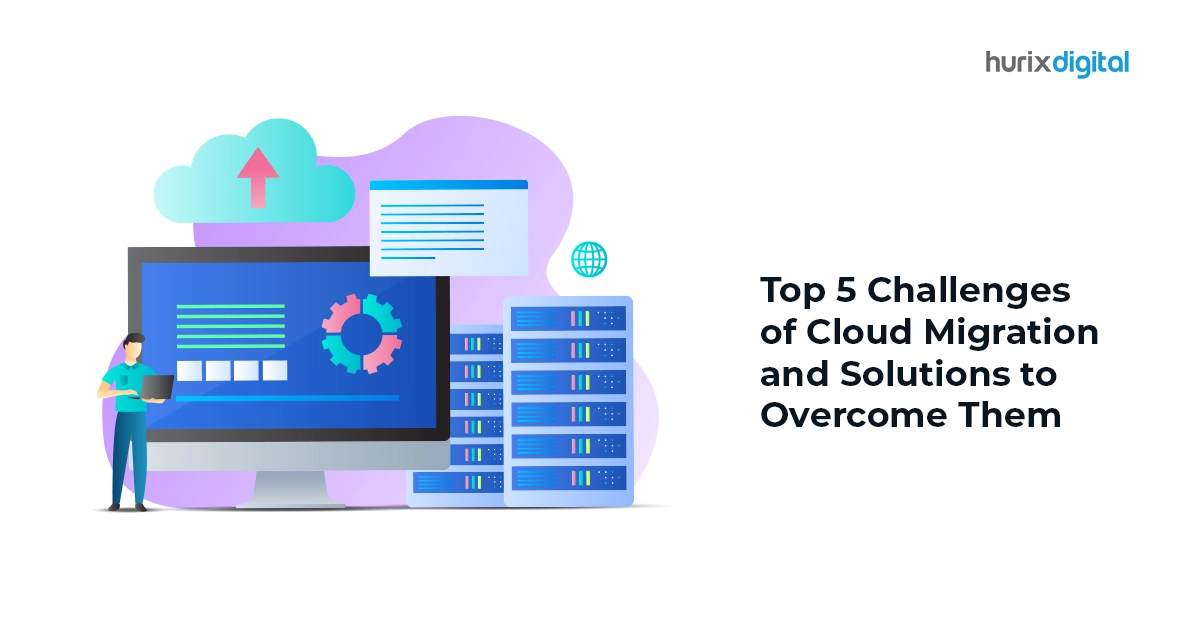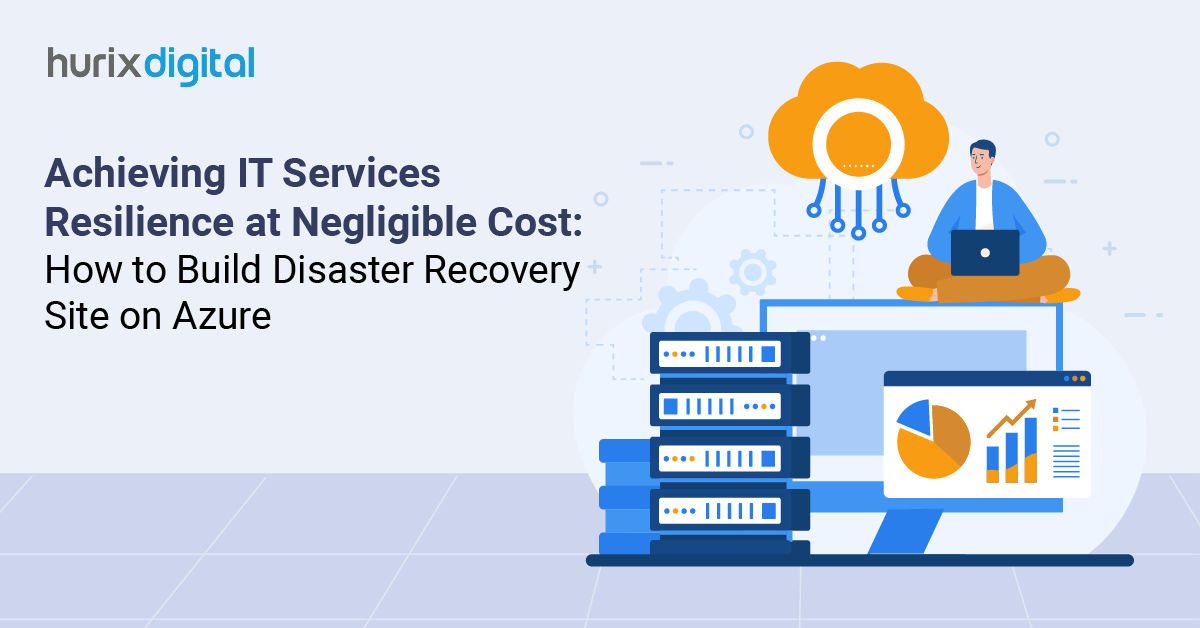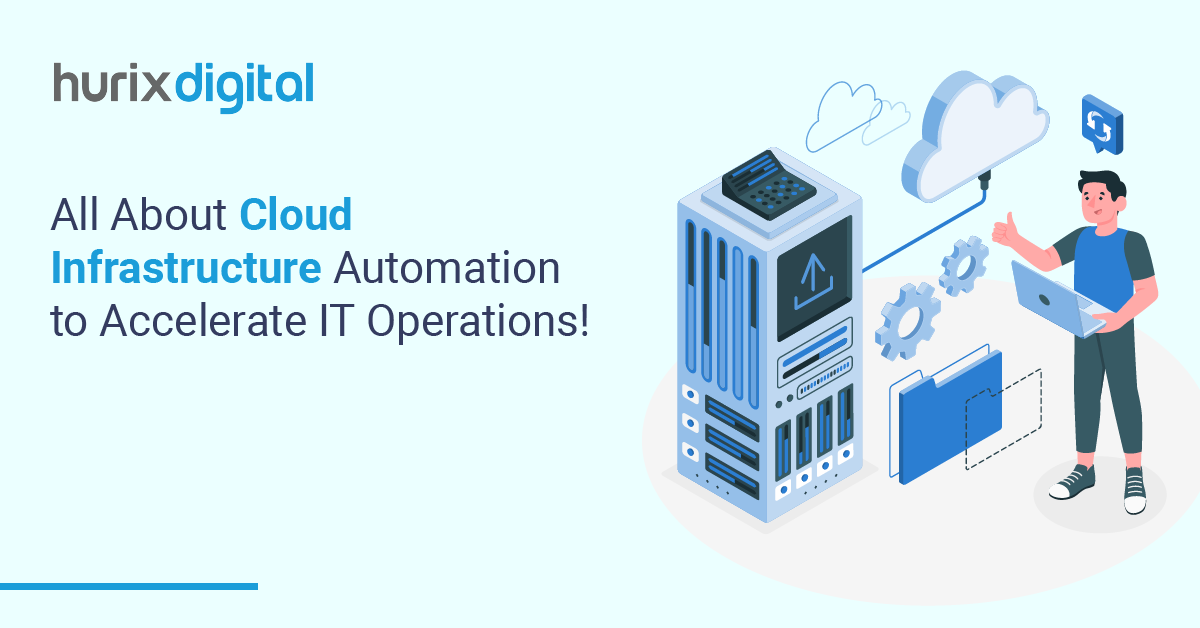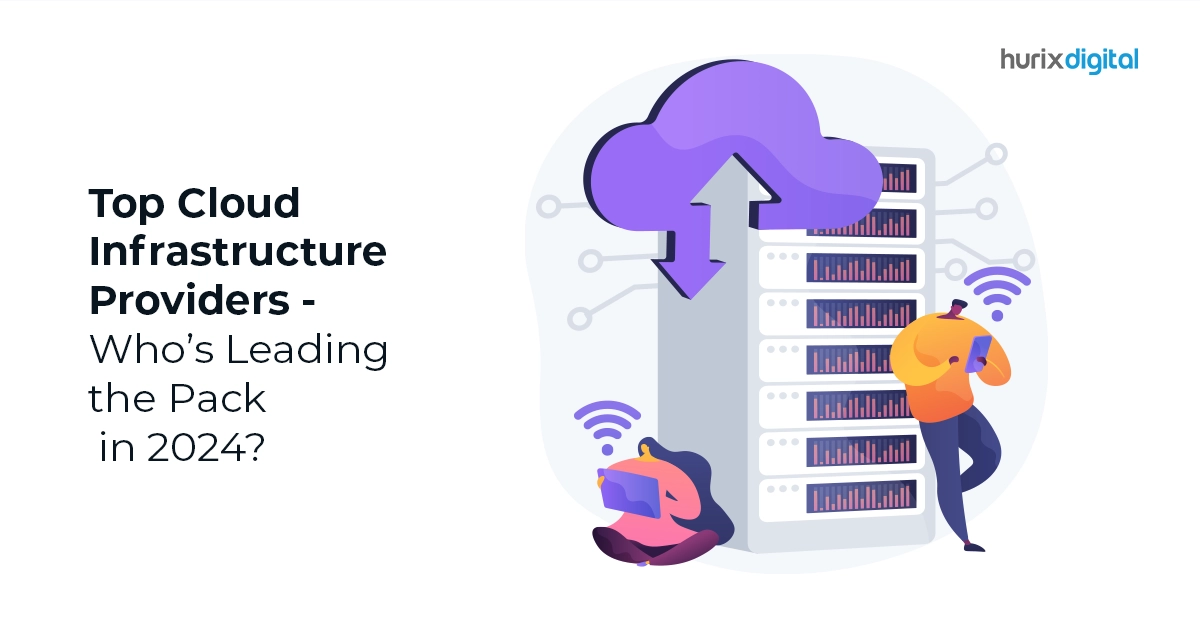
Top Cloud Infrastructure Providers – Who’s Leading the Pack in 2025?
Summarize with:
This article reviews the top cloud infrastructure providers leading the pack in 2025. It evaluates key players based on their services, performance, scalability, and innovation.
Cloud computing refers to web-based computing resources. Unlike traditional computing, it allows individuals and businesses to access virtual machines, databases, storage, processing power, and more on a pay-as-you-go basis, where you pay upfront for capabilities you might not always employ.
Public cloud service end-user spending worldwide will reach $723.4 billion by 2025. Cloud infrastructure service providers have contributed to the broad-spectrum market for cloud solutions.
Let’s explore the five global giants of the cloud infrastructure market. These companies have set the standard for cloud services by offering solutions catering to various business needs.
Table of Contents:
Top Five Cloud Infrastructure Companies in 2025
Given the rapidly evolving cloud computing environment, finding the best one based on your business needs can be daunting. Here is a detailed discussion about the best cloud computing companies in 2025 to help you make an informed decision.
1. Amazon Web Services Cloud Infrastructure
Since its founding in 2006, Amazon Web Services (AWS) has significantly transformed the cloud computing industry. It has been offering solutions based on adaptable techniques and reasonably priced prices.
Moreover, it is one of the first companies to attest to the market for cloud infrastructure, which also helped to advance application deployment and administration worldwide.
According to Synergy Research Group, AWS had 31% of the global cloud infrastructure market share in the third quarter of 2024, demonstrating its clear dominance in the field. Two factors that distinguish AWS are continuous innovation and a sharp focus on customers’ needs, which position it as a market leader.
Apart from its industry supremacy, AWS is more and more concerned with democratizing access to cutting-edge technologies. More widely available serverless computing technologies are among recent developments that enable companies to quickly apply scalable solutions with fewer resources. Graviton3 processors have improved cost efficiency for compute-intensive tasks even further, placing AWS as a preferred choice for businesses looking for innovative ideas at reasonable rates.
| Feature | Description |
| Computing | Elastic Compute Cloud (EC2) offers resizable computing capacity |
| Storage | Simple Storage Service (S3) provides scalable object storage |
| Networking | Virtual Private Cloud (VPC) for isolated network environments |
| Database | Amazon RDS offers managed relational databases with automated maintenance |
| Security | Comprehensive security features, including encryption and compliance tools |
| Machine Learning (ML) | SageMaker facilitates building, training, and deploying ML models |
| Analytics | Redshift provides fast, simple, cost-effective data warehousing |
| Management Tools | AWS CloudFormation enables infrastructure as code for automated provisioning |
Read More: Hurix Digital Seamlessly Stabilizes a Leading Utilities Provider’s IT Infrastructure and Services
2. Microsoft Azure
Microsoft Azure is one of the most preferred cloud solutions for businesses that need powerful solutions. Henceforth, it has been adopted by almost 56% of the global organizations that use cloud services.
As of 2024, Microsoft Azure has provided over 2,800 AI and ML solutions and services for enterprises of all types. Some of these services target infrastructural areas such as healthcare, finance, government, and retail, making Azure an ideal solution for attaining business objectives.
Microsoft Azure has added new capabilities for multi-cloud and hybrid environments, such as Arc-enabled data services, which allow operations across several platforms, improving its ecosystem. Governments and heavily regulated businesses choose Azure since its development into sovereign cloud solutions guarantees compliance with local data residency rules.
However, the U.S. Federal Trade Commission is investigating Microsoft Azure for possible anti-competitive behavior, which could affect its future market dynamics.
| Features | Description |
| Hybrid Cloud Support | Extensive global presence with data centers in multiple regions for optimized performance |
| Developer Tools | Comprehensive suite of developer tools and services, including Visual Studio and GitHub |
| Analytics and Insights | Advanced analytics tools, including Azure Synapse Analytics, for deep data insights |
| IoT Integration | Top-grade Internet of Things (IoT) services for connecting and managing IoT devices |
3. Google Cloud Platform
Google Cloud Platform currently has 11% of the global cloud market share. Other Google products, such as the Google search engine, Gmail, and Google documents, share its strong base. Thus, organizations using it can enjoy the same dependable and prompt cloud infrastructure services applied to some of the best applications worldwide.
And here’s the fun part: new customers get $300 in free credits to explore Google Cloud products and build a proof of concept. No charges until you’re ready to activate your full paid account!
Google Cloud has doubled down on generative AI, adding new tools in Vertex AI to streamline the creation of AI-powered products. The platform’s dedication to open-source frameworks—like TensorFlow and PyTorch—helps to establish it as a center of AI creativity. Its Data Cloud Alliance effort also aims to simplify data interoperability between several platforms, supporting businesses in developing consistent data strategies.
| Features | Description |
| Advanced AI and ML Services | Advanced AI and ML tools for innovative applications |
| Big Data Analytics | Powerful analytics tools like BigQuery for real-time data insights |
| Free Credits | $300 in free credits for new users to try out and build on the Google Cloud Platform |
| Generative AI | 70% of generative AI unicorns are Google Cloud customers, showcasing its AI capabilities |
4. Oracle Cloud
Oracle Cloud Infrastructure (OCI) is developed with modern technological solutions to fulfill the requirements of enterprise applications. Although OCI is optimized for the enterprise environment, advances in networking, computing, and storage technologies have helped to improve application reliability, responsiveness, and scalability within the native cloud ecosystem. Driven by strategic alliances with Microsoft and Amazon, Oracle revealed a 9% year-over-year rise in sales for Q2 2024.
If you need to build production-ready, cloud-native apps, OCI is an excellent option. It offers a comprehensive set of cloud services and a strong partner base.
| Features | Description |
| Autonomous Database | Automates database management for data warehousing, transaction processing, and document databases |
| Autonomous Linux | Automatically patches and updates, ensuring 99.995% system availability |
| Cloud Native Enhancements | Innovations in computing and storage for better performance and scalability of cloud-native apps |
5. IBM Cloud
IBM Cloud is the final addition to our list of best cloud infrastructure service providers. It offers over 230 public cloud solutions that enable organizations to quickly manage third— and fourth-party risks and unlock their value.
Out of all the options, IBM Cloud shines the most in security, where you can ensure data encryption and compliance. It is specifically known for its hybrid cloud feature, which initiates smooth integration with on-premises systems. Recently, IBM improved its Quantum-as-a-Service product to let companies explore quantum computing for challenging optimization tasks.
IBM’s AI-driven services, such as Watson, allow businesses to use advanced analytics and ML for innovative solutions.
| Features | Description |
| Hybrid Cloud Integration | Seamless integration with on-premises systems for hybrid cloud environments |
| Extensive Ecosystem | Over 230 public cloud solutions to meet diverse business needs |
| AI and ML | AI-driven services like Watson for advanced analytics and innovative solutions |
Also Read: Choosing the Right Tools for an Effective Cloud Monitoring Strategy!
Final Thoughts
When choosing among the leading cloud infrastructure providers, you should use their trial accounts. Most providers, including AWS, Azure, Google Cloud, Oracle, and IBM Cloud, offer substantial credits to explore their platforms.
Take hold of this opportunity to check their effectiveness, compliance with your requirements, and compatibility with your current infrastructure.
In this context, you can consider Hurix Digital. Its Cloud Security Services provide comprehensive protection and peace of mind for businesses transitioning to the cloud. With a focus on robust security measures and tailored solutions, Hurix Digital’s team ensures data integrity, confidentiality, and availability across cloud environments.
Summarize with:

Vice President and Strategic Business Unit Head – Cloud Services
A top technology management voice on LinkedIn with 20 Years of experience in Information Technology, Cloud Services, Digital Transformation, Application Modernization, Managed Services, IT Security Engineering and Operations Management. An avid technology Leader, Leadership Speaker, Author & Coach.
 A Space for Thoughtful
A Space for Thoughtful 
